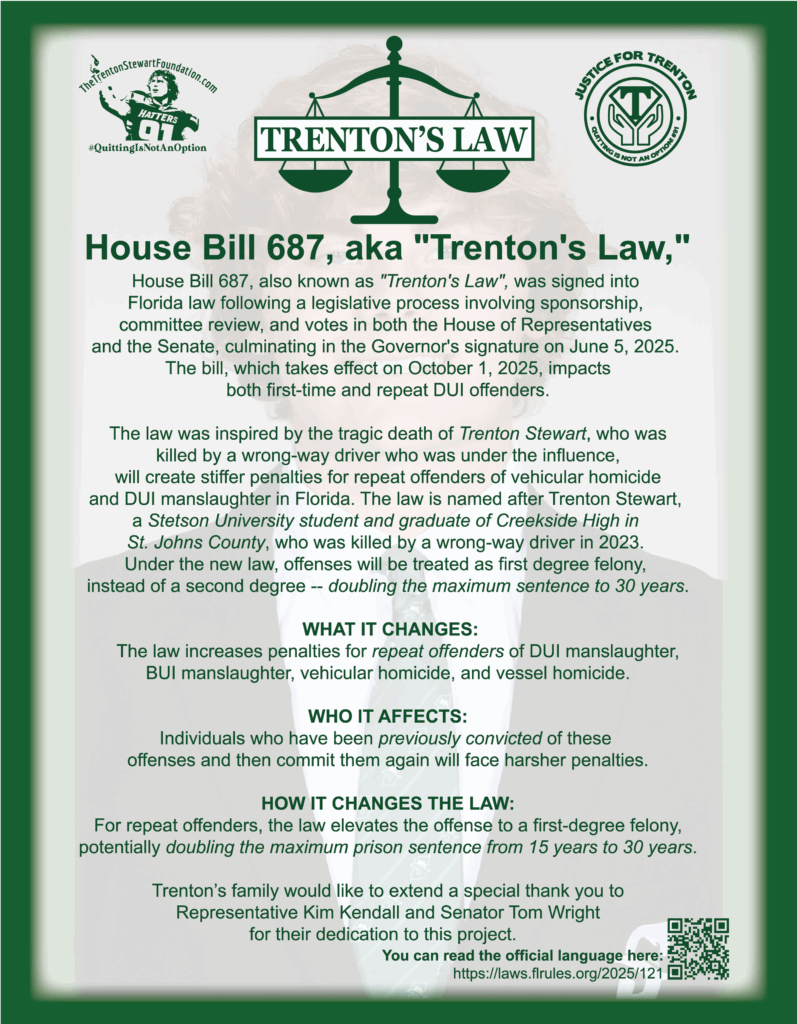
May 9, 2023
On May 9, 2023, Every parent’s worst nightmare came true. Trent was tragically killed in a wrong-way collision caused by a repeat
offender driving recklessly with substances in his system, a felon with a lengthy criminal history. Trenton was 18 years old and had just finished his Freshman year studying Cyber Security as an Academic All American football player at Stetson University in DeLand, Florida.
Trenton’s Legacy
Trent’s parent’s, Robert and Mandi, knew that his legacy would not end on that horrific day. They immediately started to develop a non-profit in honor of their extraordinary only child. They wanted to make sure that student athletes who modeled Trent’s drive and perseverance would have the same opportunities by raising funds to provide scholarships, sports camp fees and purchase sports gear.
The Mission Started to Grow – 501(c)3
The communities rallied and supported the mission. There was lots of work and in November of 2023 the foundation was granted 501(c)3 Non-Profit status.
Trenton Stewart Scholarship – Stetson University
On August 31, 2024 (Trent’s 20th heavenly birthday) our foundation fully funded the Trenton Stewart Legacy Endowment at Stetson University. This fund will continue to grow and students will benefit from these scholarships for years to come. We are trying the best we can to turn our pain into purpose and continue to carry out the legacy Trenton deserved to do himself.
Saving Lives – Trenton’s Law
Trenton’s life was recklessly taken by someone who had a previous vehicular manslaughter on his record. At the time of the accident, there were no provisions in Florida’s laws for repeat offenders of vehicular manslaughter. Trent’s parents went right to work and teamed up with Kim Kendall, a member of the Florida House of Representatives and Senator Tom Wright. After lots of work, we are proud to share that on June 5, 2025 , Governor Ron DeSantis signed “Trenton’s Law”. Trenton’s Law increases penalties for repeat DUI manslaughter and other similar offenses, elevating them from second-degree to first-degree felonies. This means a longer prison sentence of up to 30 years, instead of the previous maximum of 15.
The law aims to prevent future tragedies by deterring repeat offenders.

